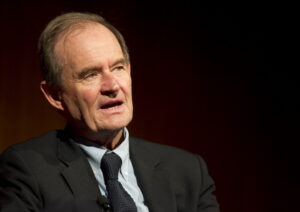As a legal recruiter, I help attorneys prepare for interviews all the time. I also speak with employers after each interview, and hear firsthand why a candidate did (or in some cases, did not) make a good impression. While I always cover the basics of interview preparation with attorneys (see 12 Lateral Interview Tips from a Legal Recruiter), I also cover the aspects of interview preparation which some may find obvious, but others often overlook. Having been in the legal recruiting profession for several years, I’ve learned that even the most basic tenets of interview etiquette are often forgotten. But employers are paying attention, and you only get one chance to make a good first impression. Below are helpful interview tips you must keep in mind if you want to land your dream legal job:

(Image via Shutterstock)
1) Dress the Part. For a legal interview, you must wear a suit. I have had employers complain to me after an interview when candidates do not dress professionally. Even if the firm is casual and everyone else is in jeans and flip flops, you must wear a suit. YOU MUST WEAR A SUIT. Did I mention that you have to wear a suit? While you’re at it, a good shoe shine can go a long way. Like it or not, our physical appearance is the biggest factor that influences others’ first impressions of us, so every little detail counts. In addition, studies also show that how you dress can change the way you see yourself. The clothes you wear can affect your confidence, so if you look the part, then you’ll be more likely to feel the part and ultimately be perceived in a better light. I often get asked by female attorneys if they should wear a pant or skirt suit, and my answer is to wear whatever makes you feel the most comfortable and confident. You don’t want to feel self-conscious during an interview, so you have to feel good about whatever you wear. Along those lines, women should keep hair and makeup simple, and accessories to a minimum so the interviewer can make an assessment of you based on your words and skills. Men should wear a tie and either be clean-shaven or if you have facial hair, keep it trimmed and clean. An unprofessional look can distract the interviewer from your qualifications, so be sure to take the time to pull your look together in advance.

(Image via Shutterstock)
2) Watch Your Language. While you may have a great rapport with your interviewer and feel very comfortable, you have to keep a professional tone — no matter what. This includes refraining from using profanity or other inappropriate language. While dropping F-bombs may be a part of your regular vernacular, you need to rein it in during an interview. Remember, this is an interview for a job in a client-services industry. If a firm does not feel comfortable putting you in front of a client, they won’t hire you. You must also keep in mind that a job interview is not a casual conversation between friends in a bar. It’s a highly formal exchange where the interviewer is assessing your professionalism, among other things. Even if your interviewer uses profanity, don’t get too comfortable and start following suit. As a lawyer, there will be plenty of opportunities to swear after you land the job.

(Image via Shutterstock)
3) Less Is More. Do not feel the need to overshare about your personal life or extracurricular activities. While you may love partying and getting toasted with your friends on the weekends, it’s best at this stage to keep your personal life just that — personal. An interview is not an appropriate place to discuss your partying ways or your recent divorce woes. While it may be appropriate in some instances to talk about your hobbies or interests outside of work, you have to remember to keep it PG and keep it positive, as you don’t want it to overshadow the entire interview. If you do share personal details, make sure they are relevant to the question. The risk of making the conversation too personal is that you may lose focus and start sharing too many irrelevant details, which will oftentimes do more harm than good. If you are asked to share personal information about yourself, It’s important to keep it light, make it interesting, and show an equal interest in the person interviewing you.

(Image via Shutterstock)
4) Lose the Gum. While it’s great to have fresh breath before an interview, nothing will be more distracting than chomping away at a Juicy Fruit during an interview. So ditch the gum altogether and pop a breath mint instead, finishing it before you even get to the reception desk. If you find yourself at the interview and you’ve forgotten to lose the gum, be sure to visit the restroom before an interview and throw it out. You need to be able to speak clearly during an interview when answering questions, and gum won’t do you any favors.

(Image via Shutterstock)
5) Unplug. Turn your phone off or on silent — not on vibrate — during an interview. Many of us are addicted to our smartphones, but the emails, voicemails, and texts will still be there after the interview. Avoid the temptation to be distracted by the quiet buzz of a vibrating phone and allow yourself to be present in the moment and focus on the interview. While it may not be an immediate dealbreaker if your phone goes off during the interview, it can raise a red flag to the interviewer. It can also distract you and cause you to lose your train of thought, so don’t risk it.

(Image via Shutterstock)
6) Timing is Everything. Be sure to show up on time, and ideally 10 minutes before your interview. You’ll want to give yourself enough time to check-in, use the restroom, and have a few moments to compose yourself and collect your thoughts before diving into the interview. But be careful not to show up too early. There’s a fine line between being eager and looking desperate, and you don’t want to send the wrong message. Arriving more than 15 minutes early can also be frustrating for a hiring manager, so try to stick to the scheduled time. On the flip side, you don’t want to show up late, as that can signal poor attention to detail or poor time management skills, and worse, a disregard for other people’s time. If it’s raining or the area is prone to traffic or unpredictable travel times, then be sure to give yourself extra time to get to the interview. Of course snafus can happen beyond our control, so if you are running late don’t panic. Call your recruiter or interviewer and let them know your ETA, asking if that time will still work and if not, offering to reschedule.

(Image via Shutterstock)
7) Don’t Watch the Clock. Sure, we’re all super busy and taking time away from our current jobs to interview elsewhere is always difficult, but it’s part of the process that you’ve committed to in order to land a great job. So forget about how long you’re away from the office and the work that’s waiting for you, and keep your gaze on the interviewer, not on a clock or your watch. Looking at your watch during an interview gives negative signals about your ability to focus, your respect for the interviewer, and your desire to get the job. If you can’t avoid the temptation to glance down at your wrist every two minutes, then leave your watch at home.

(Image via Shutterstock)
8) Mind Your Manners. Many job seekers forget the importance of being polite (or perhaps let their nerves get the better of them). But to give yourself the edge during an interview, you’ve got to mind your Ps and Qs. So shake the hand of everyone you meet, maintain good eye contact, listen well, don’t talk over someone, and say “please” and “thank you” when appropriate. If a meal is part of the interview process, then good table manners are mandatory. Interviewers are assessing the overall package, not just your skills and experience. Make sure you’re on your best behavior, and if you need an etiquette refresher course, Emily Post is just a click away.

(Image via Shutterstock)
9) Send Thank You Notes. Job search etiquette is very clear on this point: Every interview must be followed by a thank you note/email, ideally within 24 hours. I’m always surprised by the number of job applicants who want to skip this simple yet important step. Employers pay close attention to the thank you note, so take this opportunity to remind your interviewers what a great applicant you are, and show them how much you want the job. Employers find it rude when applicants don’t send thank you notes, and may question your interest in the position. If you want the job, then there shouldn’t be any question in the employer’s mind about that. The thank you note is the perfect ending to an interview process where you’ll get the final word and stay on the forefront of the employer’s mind, so don’t miss out on that opportunity.
If you’d like to learn more detailed interview tips or discuss a possible lateral move, I’m here to help. Please feel free to contact me at zatassi@laterallink.com.
Ed. note: This is the latest installment in a series of posts from Lateral Link’s team of expert contributors. Zain Atassi is a Principal based in Chicago where she oversees attorney placements and client services throughout the Midwest. She recruits and places high-level attorneys with leading AmLaw firms, high-end boutiques, regional firms, and Fortune 500 companies. Her market intelligence and deep understanding of the Midwest market, along with her considerable connections with both firms and companies throughout the region, has allowed her to help numerous attorneys achieve their ultimate career goals. Zain holds a J.D. from Washington University School of Law and a B.A. with Honors from Washington University in St. Louis. Prior to recruiting, she spent six years as a litigation attorney with Chicago-based law firms. Zain resides on the Northshore of Chicago with her husband and two children, and she is fluent in Arabic.
 Lateral Link is one of the top-rated international legal recruiting firms. With over 14 offices world-wide, Lateral Link specializes in placing attorneys at the most prestigious law firms and companies in the world. Managed by former practicing attorneys from top law schools, Lateral Link has a tradition of hiring lawyers to execute the lateral leaps of practicing attorneys. Click ::here:: to find out more about us.
Lateral Link is one of the top-rated international legal recruiting firms. With over 14 offices world-wide, Lateral Link specializes in placing attorneys at the most prestigious law firms and companies in the world. Managed by former practicing attorneys from top law schools, Lateral Link has a tradition of hiring lawyers to execute the lateral leaps of practicing attorneys. Click ::here:: to find out more about us.
























 Peter S. Garnett is an attorney at Balestriere Fariello who represents clients in trials, arbitrations, and appeals. He focuses his practice on complex commercial litigation and contract disputes from pre-filing investigations to trial and appeals. You can reach Peter at peter.s.garnett@balestrierefariello.com.
Peter S. Garnett is an attorney at Balestriere Fariello who represents clients in trials, arbitrations, and appeals. He focuses his practice on complex commercial litigation and contract disputes from pre-filing investigations to trial and appeals. You can reach Peter at peter.s.garnett@balestrierefariello.com.


